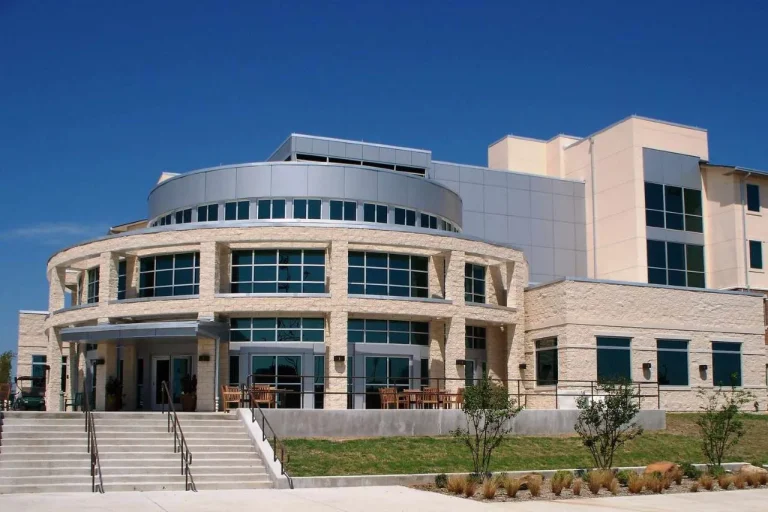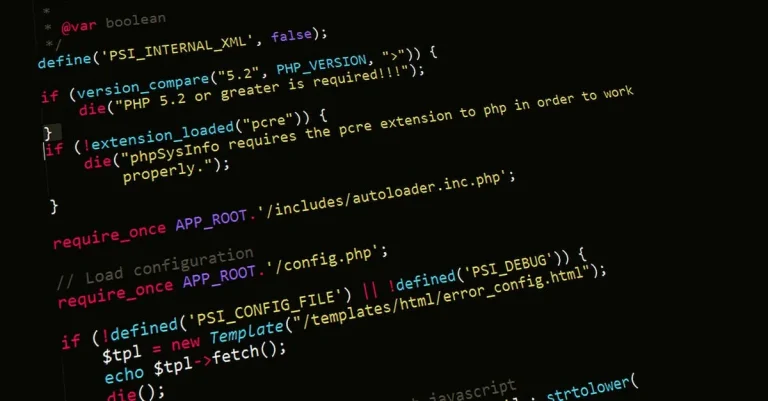Best Minors To Complement A Political Science Major
As a political science major, you gain knowledge about governments, public policies, political processes, and international relations. Complementing your studies with a minor can provide specialized expertise to expand your skillset and career options.
If you’re short on time, here’s a quick answer: History, economics, statistics, foreign language, and legal studies are top minors that develop useful skills for political science majors.
In this comprehensive guide, we explore the ideal minors to pair with a political science degree. We’ll look at minors that build relevant hard and soft skills to make you a strong candidate for careers in law, government, advocacy, and more.
Why Pursue a Minor with Political Science
While a major in Political Science provides a solid foundation in understanding the complexities of politics and government, pairing it with a minor can significantly enhance your knowledge and career prospects.
Pursuing a minor alongside your Political Science major allows you to explore other disciplines and gain a more well-rounded education. It also helps you develop a diverse skill set that can make you stand out in the job market.
Here are some compelling reasons why you should consider pursuing a minor with Political Science:
1. Broaden Your Perspective
Pairing Political Science with a minor in a related or complementary field allows you to gain a broader understanding of the political landscape. For example, a minor in History can provide valuable insights into the historical context of political events, while a minor in International Relations can help you analyze global political dynamics.
By studying multiple disciplines, you can develop a more comprehensive perspective on political issues and become a well-informed and versatile professional.
2. Enhance Your Analytical Skills
A minor in a quantitative field such as Statistics or Economics can greatly enhance your analytical abilities, which are essential in the field of Political Science. These disciplines equip you with the tools to analyze data, conduct research, and make informed decisions.
By combining the analytical skills gained from your minor with the theoretical knowledge acquired in your Political Science major, you can become a more effective problem solver and critical thinker.
3. Gain a Competitive Edge
Having a minor alongside your Political Science major can give you a competitive edge in the job market. Employers often look for candidates with diverse skill sets and the ability to think critically from different perspectives.
A minor demonstrates your willingness to go beyond the requirements of your major and shows that you have a well-rounded education. It can make you stand out among other candidates and increase your chances of landing a job in your desired field.
4. Explore Your Interests
Pursuing a minor allows you to explore your passions and interests outside of Political Science. Whether it’s a minor in Psychology, Environmental Science, or Sociology, you have the opportunity to delve into topics that fascinate you and expand your knowledge in those areas.
This exploration can not only enrich your educational experience but also help you discover new career paths or areas of specialization that you may not have considered before.
Valuable Skills to Complement Political Science
History and Geography
Studying history and geography can greatly enhance a political science major’s understanding of global politics. By examining past events and analyzing geographical factors, students can gain valuable insights into political systems, international relations, and the impact of geography on political decision-making.
Additionally, knowledge of history and geography can provide context and help predict future political trends. Websites like history.com and nationalgeographic.com are great resources to explore and expand upon these subjects.
Economics
Complementing a political science major with economics can provide a deeper understanding of how politics and the economy are intertwined. Knowledge of economic principles and theories can help analyze government policies, electoral outcomes, and the impact of economic factors on political stability.
Economic data and statistical analysis can be used to evaluate the effectiveness of different policies and predict their outcomes. Websites like economist.com and worldbank.org are reliable sources for economic information.
Statistics and Data Analysis
Political science often involves analyzing data and conducting research. Therefore, developing strong statistical and data analysis skills is essential. By understanding statistical methods and data interpretation, political science majors can effectively analyze survey results, election data, and public opinion polls.
Websites like statistics.gov and pewresearch.org can provide valuable data and resources for statistical analysis in political science.
Foreign Languages
Proficiency in foreign languages can open up numerous opportunities for political science majors. It allows them to engage with a broader range of sources, communicate with individuals from different cultures, and work in international settings.
Fluency in languages such as Spanish, Arabic, Mandarin, or French can be particularly beneficial in understanding global political issues. Websites like duolingo.com and babbel.com are popular language learning platforms that can help develop language skills.
Legal Studies
A solid understanding of legal studies can greatly complement a political science major. It provides insights into the legal framework within which political decisions are made. Knowledge of constitutional law, international law, and legal reasoning can enhance a political science major’s ability to analyze and interpret laws and policies.
Websites like law.cornell.edu and oyez.org are valuable resources for legal research and information.
Philosophy
Studying philosophy can cultivate critical thinking and analytical skills that are highly valuable for political science majors. It helps develop the ability to evaluate arguments, consider different perspectives, and form logical conclusions.
Philosophy also explores ethical theories and principles, which can be applied to political decision-making. Websites like iep.utm.edu and plato.stanford.edu offer comprehensive resources on various philosophical topics.
Top Minors for Political Science Majors
History
One of the best minors to complement a political science major is history. By studying history, political science majors gain a deeper understanding of the political, social, and cultural contexts that have shaped the world.
History provides valuable insights into past events, allowing students to analyze the causes and effects of political decisions. A minor in history can enhance a political science major’s research and analytical skills, as well as their ability to critically evaluate different perspectives.
Economics
Another excellent minor for political science majors is economics. The field of economics examines the production, distribution, and consumption of goods and services, as well as the behavior and interactions of individuals, businesses, and governments.
By studying economics, political science majors can gain a solid understanding of how economic factors influence political decisions and policies. This knowledge can be invaluable for those interested in pursuing careers in government, public policy, or international relations.
Statistics
Statistics is a highly relevant minor for political science majors, as it provides the tools and techniques for analyzing and interpreting data. Political science often involves conducting research and analyzing quantitative data to make informed conclusions.
A minor in statistics can equip political science majors with the skills to collect and analyze data effectively, enhancing their ability to make evidence-based arguments and policy recommendations. Additionally, proficiency in statistical analysis is highly sought after in many industries and can open doors to a wide range of career opportunities.
Foreign Language
Political science is a global discipline that explores the complexities of international relations and comparative politics. Therefore, a minor in a foreign language can greatly complement a political science major.
Proficiency in a foreign language not only enhances communication skills but also allows political science majors to engage with different cultures and perspectives. This can be particularly beneficial for those interested in diplomacy, international development, or working in multinational organizations.
Legal Studies
A minor in legal studies is an excellent choice for political science majors interested in law and policy. Legal studies provide a foundation in the principles and practices of law, which can be valuable in understanding the legal framework within which political decisions are made.
This minor can enhance a political science major’s ability to analyze legal issues, interpret legislation, and understand the relationship between law and politics. It can also serve as a stepping stone for those considering pursuing a law degree.
Choosing the Right Minor for You
When pursuing a major in Political Science, choosing the right minor can greatly enhance your academic experience and future career prospects. Here are some important factors to consider when selecting a minor:
Career Goals
One of the most important considerations when choosing a minor is your career goals. Think about what field you want to work in after graduation and how a specific minor can complement your political science major.
For example, if you are interested in pursuing a career in international relations, a minor in a foreign language or global studies could be a great choice. On the other hand, if you aspire to work in public policy, a minor in economics or public administration might be more suitable.
Interests and Passions
Another factor to consider is your personal interests and passions. If you have a strong interest in a particular subject, choosing a minor that aligns with that interest can make your academic journey more enjoyable and fulfilling.
For instance, if you are passionate about environmental issues, a minor in environmental studies or sustainability could provide you with a deeper understanding of the intersection between politics and the environment.
School Options
When selecting a minor, it is also important to consider the options available at your school. Some universities may offer a wide range of minors, while others may have a more limited selection. Take the time to research the minors offered by your institution and see which ones align with your interests and complement your political science major.
Course Load
Lastly, consider the course load associated with your minor. Some minors may require a significant number of additional courses, which could potentially add to your workload. It is important to find a balance between your major and minor coursework to ensure that you can successfully complete both without feeling overwhelmed.
Talk to academic advisors and current students to get a better understanding of the workload associated with different minors.
Remember, choosing the right minor can have a significant impact on your academic and professional journey. Take the time to explore your options, consider your goals and interests, and find a minor that will complement your political science major and help you achieve your career aspirations.
Getting the Most from Your Minor
Choosing a minor to complement your political science major can greatly enhance your academic experience and future career prospects. A well-chosen minor can provide you with a diverse skill set and a deeper understanding of a specific field, making you a more well-rounded and competitive candidate in the job market.
Here are some tips to help you get the most out of your minor:
Take Complementary Electives
When selecting your electives, look for courses that align with your major and minor. Taking classes that explore similar themes or subjects can help you make connections between the two disciplines and deepen your knowledge in both areas.
For example, if you are majoring in political science and minoring in economics, consider taking electives such as “Politics of Economic Development” or “International Trade Policy.” These courses will provide you with a comprehensive understanding of the intersection between politics and economics, giving you a unique perspective that can be valuable in a variety of career paths.
Look for Overlapping Courses
Some universities offer courses that count towards both your major and minor requirements. This can be a great opportunity to save time and effort while still gaining valuable knowledge. Check with your academic advisor or the department offering your minor to see if there are any courses that overlap with your major requirements.
For instance, if you are majoring in political science and minoring in history, you may find that certain history courses can fulfill both major and minor requirements. By taking advantage of these overlapping courses, you can maximize your academic workload and focus on other areas of interest.
Get Related Internships
Internships are a fantastic way to gain practical experience in your field of interest. Look for internships that align with both your major and minor, as this will allow you to apply your knowledge in a real-world setting.
For example, if you are majoring in political science and minoring in environmental studies, seek out internships with organizations that focus on environmental policy or advocacy. These internships will not only give you hands-on experience but also demonstrate your ability to apply your interdisciplinary knowledge in a professional setting.
Additionally, internships can provide valuable networking opportunities and potentially lead to job offers after graduation.
Remember, the goal of choosing a minor is to complement your major and provide you with a unique skill set. By taking complementary electives, looking for overlapping courses, and getting related internships, you can make the most out of your minor and enhance your overall academic and career prospects.
Conclusion
The right minor paired with a political science degree can strengthen your skillset and expand your career opportunities. Minors like history, economics, statistics, foreign language, and legal studies provide valuable complementary knowledge and expertise.
By choosing a minor strategically aligned with your goals, you can become a well-rounded job candidate ready to excel in law, government, advocacy, and more upon graduation.







